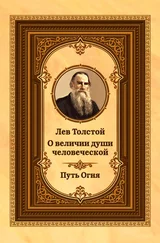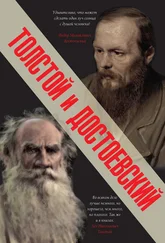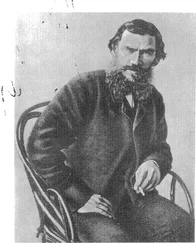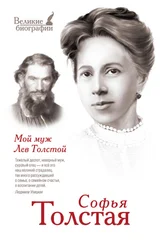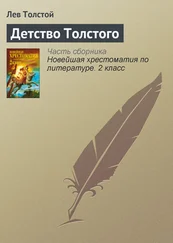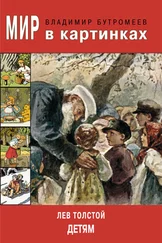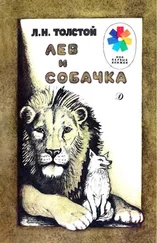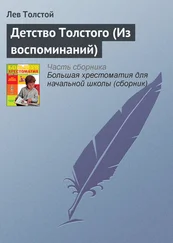Лев Толстой - Katia
Здесь есть возможность читать онлайн «Лев Толстой - Katia» весь текст электронной книги совершенно бесплатно (целиком полную версию без сокращений). В некоторых случаях можно слушать аудио, скачать через торрент в формате fb2 и присутствует краткое содержание. Издательство: Иностранный паблик, Жанр: Русская классическая проза, на английском языке. Описание произведения, (предисловие) а так же отзывы посетителей доступны на портале библиотеки ЛибКат.
- Название:Katia
- Автор:
- Издательство:Иностранный паблик
- Жанр:
- Год:неизвестен
- ISBN:нет данных
- Рейтинг книги:3 / 5. Голосов: 1
-
Избранное:Добавить в избранное
- Отзывы:
-
Ваша оценка:
- 60
- 1
- 2
- 3
- 4
- 5
Katia: краткое содержание, описание и аннотация
Предлагаем к чтению аннотацию, описание, краткое содержание или предисловие (зависит от того, что написал сам автор книги «Katia»). Если вы не нашли необходимую информацию о книге — напишите в комментариях, мы постараемся отыскать её.
Katia — читать онлайн бесплатно полную книгу (весь текст) целиком
Ниже представлен текст книги, разбитый по страницам. Система сохранения места последней прочитанной страницы, позволяет с удобством читать онлайн бесплатно книгу «Katia», без необходимости каждый раз заново искать на чём Вы остановились. Поставьте закладку, и сможете в любой момент перейти на страницу, на которой закончили чтение.
Интервал:
Закладка:
“If you knew what you are doing!” he exclaimed in a trembling voice.
I began to cry, and I felt my heart somewhat relieved. He was sitting near me, silent. I was sorry for him, ashamed of myself, troubled by what I had done. I did not look at him. I felt sure that he was looking at me, and that his eyes were perplexed or severe. I turned; his eyes were indeed fixed upon me, but they were kind and gentle and seemed entreating forgiveness. I took his hand, and said:
“Pardon me! I do not know, myself, what I said.”
“Yes, but I know what you said, and I know that you spoke the truth.”
“What truth?” I asked.
“That we must go to St. Petersburg. This is no longer the place for us.”
“As you wish.”
He took me in his arms and kissed me.
“You forgive me?” he said, “I have been to blame concerning you…”
In the evening I was at the piano a long time playing for him, while he walked up and down the room, repeating something in a low tone to himself. This was a habit with him, and I often asked him what he was murmuring thus, and he, still thoughtful, would repeat it again to me; generally it was poetry, sometimes some really absurd thing, but even the very absurdity would show me what frame of mind he was in.
“What are you murmuring there, now?” I asked after a time.
He stood still, thought a little, then, smiling, repeated the two lines from Lermontoff:
“And he, the madman, invoked the tempest,
As if, in the tempest, peace might reign!”
“Yes, he is more than a man; he sees everything!” thought I; “how can I help loving him!”
I left the piano, took hold of his hand, and began to walk up and down with him, measuring my steps by his.
“Well!” he said, looking down at me with a smile.
“Well!” I echoed; and our two hearts seemed to spring to each other once more.
At the end of a fortnight, before the fêtes, we were in St. Petersburg.
CHAPTER VII
OUR removal to St. Petersburg, a week in Moscow, visits to his relatives and to my own, settling ourselves in our new apartment, the journey, the new city, the new faces, all seemed to me like a dream. All was so novel, so changeful, so gay, all was so brightened for me by his presence, by his love, that the placid country life appeared to me something very far off, a sort of unreal thing. To my great surprise, instead of the arrogant pride, the coldness, I had expected to encounter, I was welcomed by all (not only by our relatives, but by strangers,) with such cordiality that it seemed as if they had no thought of anything but me, and as if one and all had been longing for my arrival to complete their own happiness. Contrary to my anticipations, in the circles of society, even in those which seemed to me most select, I discovered many friends and connections of my husband whom he had never mentioned to me, and it often struck me as strange and disagreeable to hear him utter severe strictures upon some of these persons who seemed to me so good. I could not understand why he treated them so coldly, or why he tried to avoid some acquaintances whose intimacy I thought rather flattering. I thought that the more one knew of nice people, the better it was, and all these were nice people.
“Let us see how we shall arrange things,” he had said to me before we left the country: “here, we are little Croesuses, and there we shall be far from rich; so we cannot remain in the city longer than Easter, and we cannot go much into society, or we shall find ourselves embarrassed; and I would not like you…”
“Why go into society?” I had answered; “we will only visit our relatives, go to the theatre and opera, and to hear any good music, and even before Easter we can be at home again in the country.”
But scarcely were we in St. Petersburg than all these fine plans were forgotten. I had been suddenly thrown into a world so new, so happy, so many delights had surrounded me, so many objects of heretofore unknown interest were offered to me, that all in a moment, as it were, and without being conscious of it, I disavowed all my past, I upset all the plans formerly arranged. Until now there had been nothing but play; as to life itself, it had not yet begun; but here it was now, the real, the true, – and what will it be in the future? thought I. The anxieties, the fits of depression, which came upon me in the country, disappeared suddenly as if by enchantment. My love for my husband became calmer, and, on the other hand, it never occurred to me, in this new life, to think that he was loving me less than formerly. Indeed, it was not possible for me to doubt this love; each thought was instantly understood by him, each sentiment shared, each wish gratified. His unalterable serenity had vanished, here, or perhaps it had only ceased to cause me any irritation. I even felt that besides his old love for me he seemed now to find some new charm in me. Often, after a visit, after I had made some new acquaintance, or after an evening at home, when, with secret misgiving lest I should commit some blunder, I had been performing the duties of hostess, he would say to me:
“Well, my little girl! bravo! well done, indeed!”
This would fill me with delight.
A short time after our arrival he wrote to his mother, and, as he handed me the letter to let me add a few words, he said I must not read what he had written; I laughingly persisted in seeing it, and read:
“You would not recognize Katia, I hardly recognize her myself. Where could she have acquired this lovely and graceful ease of manner, this affability, this fascination, this sweet, unconscious tact? And still always so simple, so gentle, so full of kindness. Every one is delighted with her; and as for me, I am never tired of admiring her, and, if that were possible, would be more in love with her than ever.”
“This, then, is what I am?” I thought. And it gave me so much pleasure and gratification that I felt as if I loved him more than ever. My success with all our acquaintances was a thing absolutely unexpected by me. On all sides I was told: here, that I had particularly pleased my uncle, there, that an aunt was raving over me; by this one, that there was not a woman in all St. Petersburg like me; by that one, that if I chose there would not be a woman in society so sought after as myself. There was one cousin of my husband especially, Princess D., a lady of high rank and fashion, no longer young, who announced that she had fallen in love with me at first sight, and who did more than any one else to turn my head with flattering attentions. When, for the first time, this cousin proposed to me to go to a ball, and broached the subject to my husband, he turned towards me with an almost imperceptible smile, and mischievous glance, and asked if I wanted to go. I nodded, and felt my face flush.
“One would say, a little culprit, confessing a wish,” he said, laughing good-humoredly.
“You told me we must not go into company, and that you would not like it,” I responded, smiling also, and giving him an entreating glance.
“If you wish it very much, we will go.”
“Indeed, I would rather…”
“Do you wish it, wish it very much?” he repeated.
I made no answer.
“The greatest harm is not in the world, society, itself,” he went on; “it is unsatisfied worldly aspirations that are so evil, so unhealthful. Certainly we must go, – and we will go,” he concluded, unhesitatingly.
“To tell you the truth,” I replied, “there is nothing in the world I long for so much as to go to this ball!”
We went to it, and my delight was far beyond all my anticipations. At this ball, even more than before, it seemed to me that I was the centre around which everything was revolving; that it was for me alone that this splendid room was in a blaze of light, that the music was sounding, that the gay throng was gathering in ecstasy before me. All, from the hair-dresser and my maid to the dancers, and even the stately old gentlemen who slowly walked about through the rooms, watching the younger people, seemed to me to be either implying or telling me in downright speech that they were wild about me. The impression which I produced at this ball, and which my cousin proudly confided to me, was summed up in the general verdict that I was not the least in the world like other women, and that there was about me some peculiar quality which recalled the simplicity and charm of the country. This success flattered me so much that I frankly owned to my husband how I longed to go to at least two or three of the balls to be given in the course of the winter, “in order,” I said, despite a sharp little whisper from my conscience, “that I may be satiated, once for all!”
Читать дальшеИнтервал:
Закладка:
Похожие книги на «Katia»
Представляем Вашему вниманию похожие книги на «Katia» списком для выбора. Мы отобрали схожую по названию и смыслу литературу в надежде предоставить читателям больше вариантов отыскать новые, интересные, ещё непрочитанные произведения.
Обсуждение, отзывы о книге «Katia» и просто собственные мнения читателей. Оставьте ваши комментарии, напишите, что Вы думаете о произведении, его смысле или главных героях. Укажите что конкретно понравилось, а что нет, и почему Вы так считаете.

